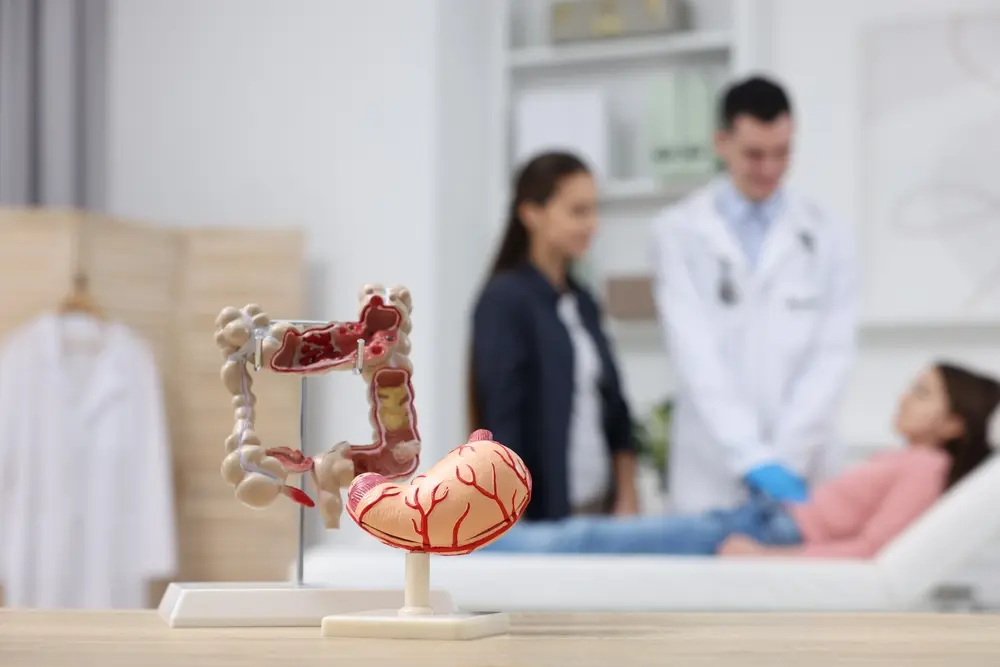
Clostridium difficile (C. diff) infection is a severe threat to public health. According to the US Department of Health, the Clostridioides difficile germ causes about 500,000 infections in the US each year. Sadly, an estimated 1 in 6 patients who get the infection will get it again in the subsequent 2 to 8 weeks.
This article will help you understand the causes, treatment options, and preventative measures that you can take to mitigate the risk of infection. We'll also highlight potential new treatments through clinical trials by Science 37.
C. diff, short for Clostridioides difficile, is a type of germ (bacterium) that can cause severe infections in humans. This germ is common and can be found in many different settings where it can quickly spread among people who are already sick or vulnerable.
Infection happens when you come into contact with the bacterium, either by touching or ingesting food from contaminated surfaces. Once it enters your body, C. diff produces toxins that attack the lining of your large intestine, causing inflammation and damage. This leads to the unpleasant symptoms that characterize a C. diff infection.
The tricky part is that C. diff bacterium loves it when your gut environment is thrown off balance – like when you take antibiotics to fight off another infection. Antibiotics tend to wipe out the good bacteria in your gut that keep C. diff in check, giving it a chance to multiply and cause more health issues.
The C. diff germ is tough. It forms spores like little protective shells that allow it to survive in harsh conditions. The spores resist acid, heat, and many disinfectants and antibiotics. So, even if someone with C. diff leaves a room, those spores can stick around and infect someone who comes into contact with them.
The germ is also good at spreading through the fecal-oral route. This implies that the bacteria may be present in feces and subsequently transmitted through contact with contaminated surfaces. This can lead to potential ingestion when individuals touch their mouth.
In places like hospitals, where there are many sick people and opportunities for contact with contaminated surfaces, C. diff can quickly find new hosts. C. diff is one of the most common infectious diseases in the US.
Clostridioides difficile infection (CDI) is usually a side effect of antibiotics. But it can also happen to people with conditions like inflammatory bowel disease, kidney disease, and immunosuppression because of the compromised immune system. Other risk factors include age and hospitalization or institutionalization.

CDI impacts range from mild discomfort to something much more severe. For some people, it might just mean a few days of feeling “under the weather”, but for others, especially those who are already dealing with health issues like blood pressure, kidney failure, etc., it can be downright life-threatening. Let's explore some common symptoms of C. difficile:
C. diff symptoms may resemble stomach flu or food poisoning at first; however, they stick around longer. In some cases, the symptoms are very severe and life-threatening. As CDI cases continue to increase and treatments become more refractory, experts say more patients will have C. diff-associated toxic megacolon in the future. C. diff has been shown to cause about 15,000 deaths each year in the US alone.
If you're on antibiotics, it's easy to mistake C. diff diarrhea for an average side effect. But basically, C. diff stool is mushy or porridge-like diarrhea that lasts for several days. It might have some green tint and occasionally contain pus, mucus, or blood.
You should also note that the CDI may happen without diarrhea. That's usually because some people have other medications or health conditions that affect their bowels and may prevent diarrhea.

Here are some critical steps you can take to protect yourself and others from C. diff:
Typically, antibiotics are the go-to treatment to combat the infection. Medications such as metronidazole, vancomycin, or fidaxomicin are commonly prescribed to help treat C. diff infections. Alternative treatments may be necessary in some cases, particularly with recurrent infections or severe cases. One such treatment is fecal microbiota transplantation (FMT), where healthy bacteria from a donor stool are transplanted into the patient's gut to restore a healthy balance of bacteria and eliminate C. diff.
Despite these treatment options, C. diff infections can be challenging to manage, with recurrence being common. This is why organizations like Science 37 are engaged in developing innovative solutions to address this persistent problem. Through gastrointestinal-focused clinical trials, Science 37 aims to explore new avenues for treating C. diff infections and reducing the likelihood of recurrence. These trials may involve testing novel medications, alternative treatment methods, or innovative approaches such as microbiome modulation.
If you or someone you know has experienced the challenges of C. diff infections or is concerned about the risks associated with this bacterium, participating in a clinical trial with Science 37 could offer hope for better outcomes. Such trials give you access to the most advanced treatments and allow you to be a part of the scientific community's efforts to combat C. diff infections.
If you want to learn more about participating in a gastrointestinal-focused clinical trial with Science 37, we encourage you to contact us directly or speak with your healthcare provider. Our trials are ongoing, seamless, and decentralized, meaning you can participate from the comfort of your own home. We also provide compensation for your efforts.
Together, we can make strides towards finding innovative solutions for managing gastrointestinal conditions like C. diff infections. Your involvement could pave the way for better treatment options and improved outcomes for individuals worldwide.


